
Editor
In Marseille, Rosa, 60, dedicated her life to family and politics with the same sense of duty. Everyone considers her unwavering, until the day she falls in love with Henri. For the first time, Rosa is afraid to commit. Between the pressure of his family, politics and a desire to indulge in her feelings, the conflict is difficult to sustain.

Editor
Daniel leaves prison. He returns to Marseilles where Mathilda, his daughter, has just given birth. Nicolas, her spouse, a self-employed driver, is exhausted while Mathilda is a sales assistant on a trial basis. But, one night, Nicolas is assaulted by taxi drivers determined to reduce unfair competition.

Director
A disassembly / reassembly of 58 films by Jean-Pierre Mocky, the editor becoming the director and the hero of his own film.

Editor
By a little bay near Marseille lies a picturesque villa owned by an old man. His three children have gathered by his side for his last days. It’s time for them to weigh up what they have inherited of their father’s ideals and the community spirit he created in this magical place. The arrival, at a nearby cove, of a group of boat people will throw these moments of reflection into turmoil.

Director

Editor
Quiet 16-year-old Louis, the high school headmaster’s son, has never been in trouble. His best friend, 18-year-old Greg, however, is his polar opposite: provocative, angry, violent, he has been kicked out of school for physically threatening young English teacher Camille. When Greg asks Louis to help him take revenge on Camille, Louis accepts, fascinated...
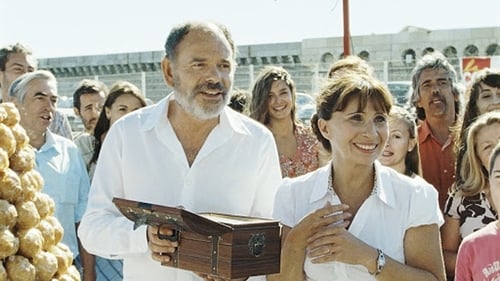
Editor
A union pensioner and his wife are robbed, but find that merely getting the assailants brought to justice is not enough for their consciences.
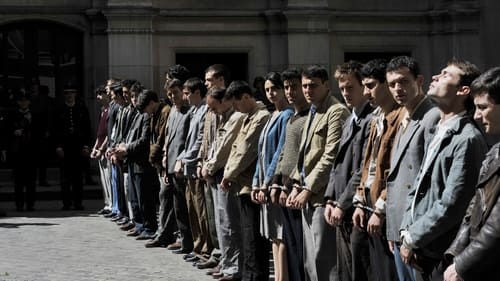
Editor
This gripping historical drama recounts the story of Armenian-born Missak Manouchian, a woodworker and political activist who led an immigrant laborer division of the Parisian Resistance on 30 operations against the Nazis in 1943. The Nazis branded the group an Army of Crime, an anti-immigrant propaganda stunt that backfired as the team's members became martyrs for the Resistance.

Editor
Elsa, a woman with a long history of depression in the midst of a divorce from her husband of 12 years develops an obsession with a seven year old girl she sees at a birthday party when she comes to pick up her son Thomas. Determined to find out more about the girl, Elsa uses Thomas as a way into the girl's family by aiding to develop a friendship between Thomas and the girl's brother Jeremy so that in turn Elsa can then befriend the girl's mother Claire. She uses Thomas more and more in her pursuit of this obsession telling her employer and fellow employees that Thomas is seriously ill so that she can run off watch the girl (Lola) wherever she goes. Elsa even tells her parents lies that she is going out with a friend so they will baby-sit so Elsa can even go as far as hiding in the bushes outside of Lola's house and watching her at night.

Editor
A young journalist (Lespert) helps the French President compile his memoirs.

Editor
Le Cou de la girafe (The Giraffe's Neck) is a 2004 French/Belgian film directed by Safy Nebbou.

Editor
With the energy of the dying, those in power apply themselves to reasserting the value of work – with force, if need be. But more and more workers have understood that, to truly value their work, they have to do without it. They also have to get rid of the society of consumption that goes along with it. It may not be easy, but it is certainly amusing. We present a panorama of a mass desertion destined to spread.
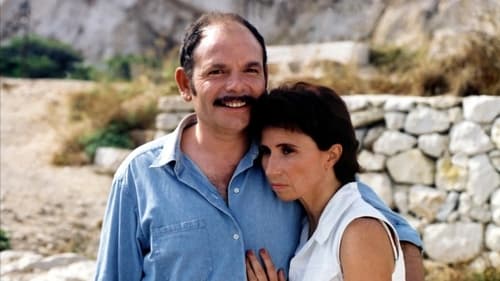
Editor
Marie-Jo and Her Two Lovers (French: Marie-Jo et ses deux amours) is a 2002 French drama film directed by Robert Guédiguian. It was entered into the 2002 Cannes Film Festival.

Editor
"I often say sociology is a martial art, a means of self-defence. Basically, you use it to defend yourself, without having the right to use it for unfair attacks." (Pierre Bourdieu) The world has witnesses who speak out loud what others keep to themselves. They are neither gurus, nor masters, but those who consider that the city and the world can be thought out. The sociologist, Pierre Bourdieu is one such witness." Over a three- year period, Pierre Carles' camera followed him through different situations: a short conversation with Günter Grass, a lively conference with the inhabitants of a working-class suburb, his relations with his students and colleagues and his plea that sociology be part of the life of the city. His thinking has a sort of familiarity, which means it is always within our reach. It is the thinking of a French intellectual who has chosen to think his times.

Editor
A dark tale of working-class life in Marseilles, a city in crisis. Interesting characters include a hard-bitten but compassionate fish market worker with a drug addicted daughter and a moody bartender with a shocking secret life.

Editor
From the director of Marius et Jeannette, this story of two working-class families is a fable with an optimist streak. A young black man, Francois, is wrongly accused of rape by a racist policeman. The story is told in voiceover by his childhood friend, neighbor, and the mother of his future child, Clementine, who is white. The city is Marseilles as in the previous film, symbolic with its churches, prisons and ruins. Except in this film, director Robert Guediguian also ventures outside, taking the story to Sarajevo; two different cities, one devastated by war, the other by a bad economy and unemployment. A la Place du coeur won a Special Jury Prize at the 1998 San Sebastian Film Festival and was also shown at the 1998 Toronto Film Festival and the 1998 Montreal Film Festival.
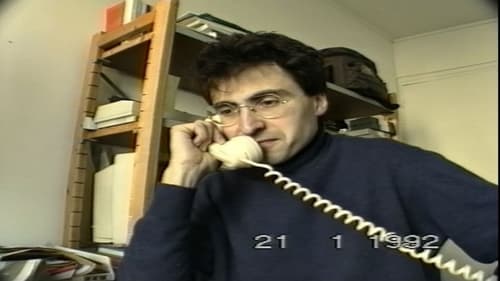
Editor
"Pas vu, pas pris" starts with a subject filmed 2 years ago ; ordered then forbidden to broadcasting by Canal + : it was "Pas vu à la télé". Bernard Benyamin, Henri de Virieux, Patrick de Carolis, Anne Sinclair, Charles Villeneuve (amongst others) appear before the candid camera of Pierre Carles, for once subjected to an investigation that concerns their profession. After proclaiming that there is no taboo subject on television, they discover a pirate document showing Étienne Moujeotte and François Léotard in a business discussion about the destinies of TF1. Question asked : would they have agreed to broadcast this document and if not, why not ? The investigation itself is objectively searching : anything can be said on TV except one thing, the more or less close collusion of journalists and the political powers. Pierre Carles gives us a sharp reflection on the scope of this "fourth power" that the media have become, and on the compromises of those who are its masters.

Producer
"Pas vu, pas pris" starts with a subject filmed 2 years ago ; ordered then forbidden to broadcasting by Canal + : it was "Pas vu à la télé". Bernard Benyamin, Henri de Virieux, Patrick de Carolis, Anne Sinclair, Charles Villeneuve (amongst others) appear before the candid camera of Pierre Carles, for once subjected to an investigation that concerns their profession. After proclaiming that there is no taboo subject on television, they discover a pirate document showing Étienne Moujeotte and François Léotard in a business discussion about the destinies of TF1. Question asked : would they have agreed to broadcast this document and if not, why not ? The investigation itself is objectively searching : anything can be said on TV except one thing, the more or less close collusion of journalists and the political powers. Pierre Carles gives us a sharp reflection on the scope of this "fourth power" that the media have become, and on the compromises of those who are its masters.
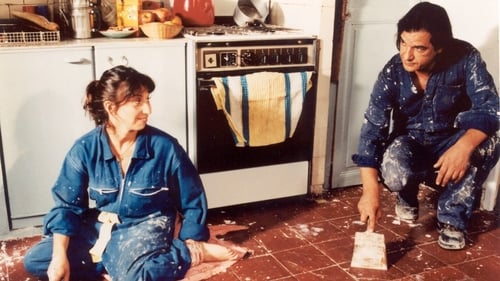
Editor
Jeannette is a single mother living in a working-class community in Marseilles; she tries to support herself and her two kids on her salary as a check-out girl at a supermarket and lives in an apartment complex where everyone is thrown into close proximity with everyone else. Marius is working as a security guard at a cement factory that has gone out of business; he's also squatting in the building, since the plant is soon to be demolished and he'll be needing his money later on. One day, Jeannette happens by the factory, and spotting several cans of paint, tries to take two of them home with her. Marius spots her and tries to chase her away, while she rails at him with curses against the capitalist system. The next day, an apologetic Marius appears at her doorstep, cans of paint in hand; the two soon become friendly, and a romance begins to bloom, though it quickly becomes obvious that Jeannette's romance novel fantasies are a bit off the mark from what Marius has in mind.
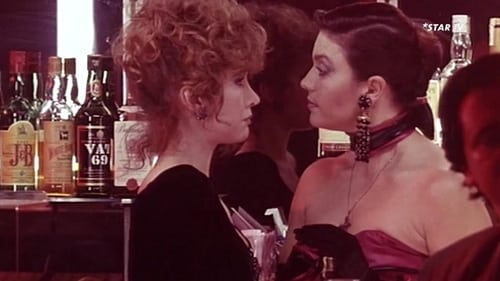
Editor

Editor
















